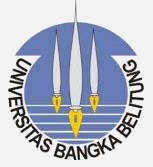HOUSING CHARACTERISTICS AND RESIDENTIAL PREFERENCE OF NORTHERN IMMIGRANTS IN ILORIN METROPOLIS, KWARA STATE, NIGERIA
DOI:
https://doi.org/10.33019/berumpun.v8i1.210Keywords:
Housing, Northerner, Immigrants, Residential Preference, FacilitiesAbstract
The study looked at the housing situation of migrants from the north in the Ilorin Metropolis of Kwara State. Examining the housing characteristics of northern immigrants in the Ilorin Metropolis, such as toilet, bathroom, kitchen, electricity, drainage, sources of water, as well as methods of waste disposal and determining the factors influencing their preference for housing were the specific objectives. Questionnaire and interview served as survey instruments employed to gather information from 360 randomly chosen immigrants from the north. Descriptive statistics and factor analysis were used to analyse the data. Findings revealed that a significant portion of the respondents (60.8%) moved to Ilorin Metropolis in quest of employment. Trading (30.6%), alms seeking (29.4%), and commercial motorcycle riding (17.5%) were the major economic activities common among the northern immigrants in Ilorin Metropolis. The results also revealed that a large number of the immigrants resided in rented (83.6%) single-family homes (41.7%), which were notable for having a pit toilet (70.8%), open space kitchen (67.8%), open drainage (46.7%), and covered wells (30.6%) as a source of water. In the research area, the primary determinants of northern migrants' home preferences were their socioeconomic level, the affordability of housing, and their employment security. It is glaring that northern immigrants in Ilorin metropolis lack decent housing facilities, and the government should provide affordable public housing that is supplied with electricity, a potable water supply, and appropriate management of public waste disposal facilities for non-natives.
Downloads
References
Adebayo, A. (2014). Ethnic enclaves and residential segregation in Nigerian cities: A study
of Ilorin metropolis. Journal of Urban Studies, 6(2), 45-57.
Adesina, O. A. (2007). Urban housing problems and policies in Nigeria: A case study of
Ilorin metropolis. Journal of Housing and the Built Environment, 22(1), 30-43.
Adewale, A. S. (2005). Socio-economic factors associated with urban-rural migration in
Nigeria: A case study of Oyo State, Nigeria. Journal of Human Ecology, 17(1), 13-16.
Afolayan, A. A. (2009). Dynamics of migration in Nigeria. Journal of African Migration,
(3), 35-56.
Agbo, H.A., Envuladu, E.A., Adah, U.G. and Zoakah, A.I. (2012), “An assessment of toilet facilities in secondary schools in Jos North Local Government Area of Plateau State”, Greener Journal of Educational Research, 2(4),91-94.
AKinyode, B.F., Martins, E.O. (2017). Effects of poverty on urban residents’ living and housing conditions in Nigeria. Journal of Arts and Humanities, 6(3), 38-51
Akogun, I. T., & Ojo, O. (2013). Tenant Eviction in Property Management Practice in Ilorin Metropolis, Nigeria. Journal of Economics and International Finance, 139-145.
Awumbila, M., Teye, J. K., & Yaro, J. A. (2014). Social networks, migration, and poverty in
Ghana. Migration Studies, 2(2), 206-222. https://doi.org/10.1093/migration/mnu013
Bouchoucha, I. (2012). Gender relations as a factor in determining who migrates and why: The case of Tunisia. Retrieved November 20, 2023 from https://www.mei.edu
Farinmade, A. Abduhali, O. Akinyemi, T. & Onigboje, R. (2021). Housing condition
and socio-economic characteristics of slum residents in Makoko. Journal of Research in Humanities and Social Science, 9(12), 72-84.
Ibrahim, A. (2010). Urban migration and housing in Ilorin: The case of northern
migrants. Journal of Nigerian Social and Economic Studies, 5(1), 77-89.
Ikwuyatum, G. O. (2016). Migration patterns, trends and policy issues in Africa. Journal
of Social Sciences, 48(1-3), 4-20. https://doi.org/10.1080/09718923.2016.11893560
National Population Commission (2010). Nigeria Demographic and Health Survey. Abuja, National Population Commission.
Ogundahunsi D.S. & Adejuwon, S.A. (2014). Housing condition and health relationships in Ijeda-Ijesa and Iloko-Ijesa, Osun State, Nigeria. Global Journal of Human Social Science: B Geography, Geo-Sciences Environmental Disaster Management, 14(7), 2-9
Ojochenemi, A., & Oyatayo, K. T. (2016). An Analysis of Housing Problems in the
Federal Capital Territory (FCT), Abuja, Nigeria. Asian Research Journal of Arts & Social Sciences, 1(1), 1-6.
Olanrewaju, D. O., & Adebayo, S. O. (2019). In-migration and housing dynamics in Ilorin
metropolis, Nigeria. Journal of Sustainable Development in Africa, 21(3), 98-111.
Olotuah, A. O., & Adesiji, O. S. (2005). Housing poverty, slum formation, and deviant
behaviour in Nigeria: Implications for urban planning. Cities, 22(2), 123-132.
Tong, D., Wu, Y., MacLachlan, I., & Zhu, J. (2021). The role of social capital in the collective-
led development of urbanizing villages in China: The case of Shenzhen. Urban Studies, 58(16), 3335-3353.
World Health Organization (2013). World Health Report 2013. Retrieved November 2, 2023 from https://www.afro.who.int/publications/world-health-report-2013-research-universal-health-coverage.
Yamen, T. (1967). Statistics: An Introductory Analysis, 2nd Edition. New York: Harper and
Row.
Zeng, H., Ke, Q., & Yu, X. (2021). Investigating the factors affecting the residential
satisfaction of new-generation migrants: Acase study of Hangzhou in China. International Journal of Urban Sciences, 25(1), 16-30.




